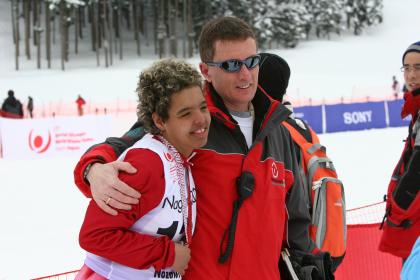
Becoming a coach with Special Olympics has many rewards. Along the way, we are always here to help. Our training programs are designed to ensure that you are able to meet the needs of any athlete involved in our organization with both confidence and skill.
Special Olympics Canada sees our volunteers coaching in two main areas; those that are preparing athletes for Provincial/Territorial, National and World Games, and those who will work with athletes in their community who wish to be active for life.
For this reason, we provide coach education that focuses on reaching the potential of both athletes and coaches in these two sporting areas.
To receive sport technical knowledge, a Special Olympics coach must also participate in the sport-specific workshop. These workshops provide the necessary knowledge in order to coach the technical aspects of the sport.
Special Olympics Canada does not run workshops pertaining to the technical aspects of Special Olympics sports. This is accomplished through our partnerships with national sport organizations (NSOs) and provincial/territorial sport organizations (P/TSOs). To access sport technical training please go to the NSO website.
NCCP Training:
Special Olympics in Canada provides three NCCP courses for coaches;
Coaching Young Athletes
- SO Coaching Young Athletes Workshop
- Fundamental Movement Skills Workshop
Community Sport – Ongoing Participation
- SO Community Sport – Ongoing Workshop
Competition – Introduction
- SO Competition – Introduction Workshop
In the new NCCP, a coach is described as:
- In Training – when a coach has completed some of the required training for a context;
- Trained – when a coach has completed all required training for a context;
- Certified – when a coach has completed all evaluation requirements for a context.
Special Olympics coaches can now become certified in the Special Olympics context:
- Portfolio consists of MED Evaluation, Emergency Action Plan, Practice Plan and Coach Information.
For more information on becoming a Special Olympics coach, visit your Provincial/Territorial Chapter’s website.

